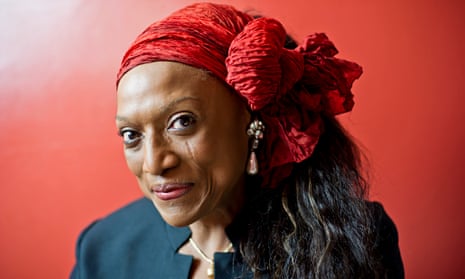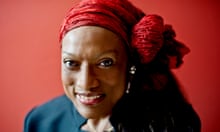Looking back at her childhood, the opera star Jessye Norman says she cannot remember a time she was not trying to sing. “I liked to put on some of my mother’s costume jewellery and a feather boa or something, and pretend I was some grand singer,” she recalled recently.
Today, although Norman no longer performs in full-scale opera, she is solidly established as a “grande dame”.
Last week, Norman, 69, stormed centre-stage once again with some full-throated support for her friend Hillary Clinton’s presidential bid. “I would certainly support this enormous brain, this incredibly generous heart this amazing woman,” she proclaimed.
The celebrated soprano’s bold contribution to the presidential race followed fast on her recent public complaint that many attacks on Barack Obama’s record are fuelled by hidden racism. She alleged that “racialism was practised at the highest levels of government”, adding: “We should be better than that, we should be bigger than that.”
For Norman, the culprits are mostly “on the other side of the aisle” –Republican Congress members who have plotted against President Obama since his inauguration, she claims.
If the Democrats felt the lack of a Wagnerian Valkyrie on their side, the role is now filled. And what’s more, they have found someone who can bridge the awkward gap between Ms Clinton’s supporters and Obama’s people. Norman is that rare thing, a prominent member of both camps.
Her noble bearing and youthful appearance suggest she is also ready for a bigger job in the political arena. A combination of intelligence and charm coupled with a commitment to social issues have led American pundits to ask if she plans to stand for office.
She did wonder, she has admitted, about running for Congress: “I considered it and then I put it aside. I don’t think that I would be successful because I would not be able to hold back on what I need to say about these things.”
Norman is clearly aware of her reputation for speaking her mind and for being difficult. Earlier this year, the soprano Deborah Voigt lent new credence to the old line that Norman can be very demanding. She claimed in a book that the star had once requested the air ahead of her to be spritzed with water as she walked, to settle the dust.
In Norman’s own book, Stand Up Straight and Sing!, published last year, she concedes she can test the patience of fellow musicians: “I acknowledge that I can bore a conductor to tears wishing to rehearse a phrase or a page more often than he feels necessary,” she wrote. Down the years her commanding personality has attracted a few alarming anecdotes that have never been verified, occasionally even prompting her to sue.
1998 saw the end of a lengthy libel case brought against Classic CD for alleging she had once been trapped in a swing door and that, when advised to turn sideways, she had replied: “Honey, I ain’t got no sideways.” The story offended her because of its use of the “patronising mockery of speech attributed to certain black Americans”, but Norman lost her case.
Political awakening came young. While she has described her childhood home in Augusta, Georgia, as “our little Garden of Eden”, her middle-class, church-going family were involved in the civil rights struggle. So Norman and her four siblings were aware, though sheltered from the harsher side of segregation: “I came from a very strong core of people who told us, practically on a daily basis, that, ‘You are as good as any other of God’s creations, and you will hear something different when you’re outside of this house but know that the truth is here’.”
Her first experience of “American apartheid” came as a five-year-old on a station platform, waiting in her Sunday best for a train to take her to visit relatives in Philadelphia. “I of course had too much energy to sit there and I saw the sign and it did say ‘whites only’ and I thought, well, there wasn’t anybody sitting there, so what difference would it make if I were to go over there and sit and play? Why would it bother anybody? Of course my mother and father took a different view.”
She understood more later when she saw President Eisenhower on one of his regular golfing trips to Augusta. Watching him walk into church, her father informed her they were not allowed to worship in the same place. Later, as an adult, she kept a journal, noting down instances of casual racism. She stopped when it began to depress her: “It became clear to me after doing this for a while that I wasn’t serving any purpose except to make myself sad.”
Further political insight came when she sang in Berlin, regularly passing through Checkpoint Charlie. She was impressed by the love of the arts she found in East Berlin. “Even though they lived under the oppressive regimes, their spirits were not squelched.”
German music has played a great part in her career. When the Wall fell, she returned to Berlin to sing Beethoven’s Fidelio: “It was marvellous to record that particular opera just weeks after the Wall had come down. And to hear that chorus sing the word Freiheit [freedom] and to mean it.”
Norman’s love of classical music came to her at 10, with the gift of a small radio and a chance encounter on the airwaves with a live performance of Donizetti’s Lucia di Lammermoor from the Metropolitan Opera, New York. She still tunes into these venerable broadcasting institutions, but at home she listens mainly to jazz, blues and hip-hop.
Educated at Peabody Conservatory after prestigious Howard University, Washington, her real commitment to opera was made when as a student she sang a small role in Smetana’s The Bartered Bride: “I found it to be such fun and so exciting. I was always intrigued with the theatre itself, getting dressed up and putting on a costume and being someone else for a while.”
Her Covent Garden debut was in 1972, as Cassandra in Berlioz’s The Trojans. The role is for dramatic sopranos and her powerful voice has usually been labelled as such. Yet it is sometimes classed as a rare “falcon” type, closer to range of a mezzo or of a dramatic soprano tessitura.
Landmarks of her career include singing at both Ronald Reagan’s and Bill Clinton’s second inaugurations and a recording of Wagner’s Liebestod in the late 1980s. Her farewell performance at the Met in the Makropulos Case was hailed as a great achievement in 1996, but since then she has focused on highly lucrative recitals.
Last Valentine’s Day, she returned to Carnegie Hall for a concert that earned some poor reviews. “Norman turned nostalgic reveries into tiny tragedies, mildly aggressive challenges into torch songs. Ultimately, alas, she tended to blur the line that separates manner from mannerism,” judged the FT. Norman has since argued that her performance matched the event: “I thought, if you’re going to have a recital on Valentine’s Day, you may as well go for it!”
She puts this same gusto into her charity work, providing free after-school arts programmes for disadvantaged children via the Jessye Norman School of the Arts. Her personal life remains cloaked in mystery. Her recent biography alludes to a proposal from an anonymous French nobleman, but there is no romantic detail.
Norman is forthcoming about everything else, however. Her book was written, she has said, to provide the story of “African American families in the Jim Crow South” that felt “their worth in the world”. And the wonder of singing voices “is that everybody’s voice is different, because you’re different on the inside”. Now she simply wants to hear the same range of voices in politics.
THE NORMAN FILE
Born 15 September 1945, in Augusta, Georgia, to Janie King and Silas Norman, a teacher and an insurance broker. One of five siblings, she sang in church and won a scholarship to Howard University, graduating cum laude.
Best of times Her 1969 debut in Tannhauser led to numerous offers. By the 1980s, her roles in Aïda and The Trojans positioned her as one of the most highly paid opera singers in the world. The devotion of her fans inspired the film Diva by Jean-Jacques Beineix in 1981. In 1990, Javier Perez de Cuellar named her honorary ambassador to the UN.
Worst of times Criticised by the FT’s Martin Bernheimer as an “exalted chantoozie” this February, her solo concerts in recent years have been sneered at by some critics as high camp. Republicans also dislike her allegations of racism towards Obama.
What she says “Pigeonholing is only interesting to pigeons.” “I am a product of a specific place and time in the history of our nation, in the Deep South, where our people marched, bled, and soldiered their way through the civil rights movement.”
What they say “One of the finest lyric artists of her generation, with a gloriously rich soprano-cum-mezzo voice, a sublime interpreter of most of the operatic and art-song repertory.” Geoffrey Wheatcroft



Comments (…)
Sign in or create your Guardian account to join the discussion